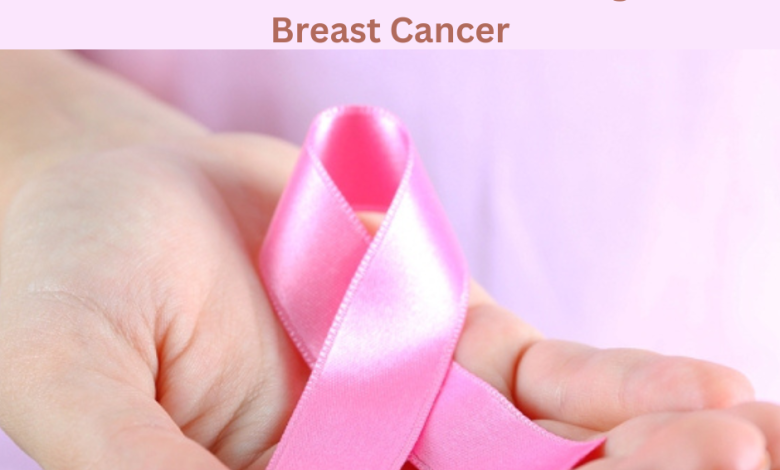How To Successfully Defeat Early Detection Is The Best Defense Against Breast Cancer

Breast cancer is one of the most common cancers among women, and early detection is critical in the fight against this disease. There are several early detection methods every woman should be aware of. In this blog post, we’ll cover all of them. We’ll also discuss the importance of regular breast cancer screenings and when to start getting screened. Additionally, we’ll provide information on what to do if you find a suspicious lump or mass. Finally, we’ll touch on what happens after a breast cancer diagnosis and the different treatment options available. Horizon is the Best Cancer Hospital in Hyderabad.
Early Detection Methods Every Woman Should Know About
Breast cancer is the most common type of cancer in women, and it’s also one of the most deadly. If caught early enough, breast cancer can be treate successfully. However, if left untreated, it can metastasize and kill the woman.
There are several early detection methods available to women. Mammography is the most commonly use method, but there are others that are just as effective. Clinical breast exams (CBEs) look for lumps in the breasts. They’re performe by a doctor or nurse during regular checkups. Self-breast exams involve a woman measuring her own breasts every day for a week to see if any changes occur.
It’s important for women to talk to their doctor about which early detection method is right for them based on their individual risk factors and symptoms. Some women may be able to use mammography while others may need other methods such as CBEs or self-exams. It’s also important to keep checking with your doctor even if you think you don’t have signs or symptoms of breast cancer because many cases go undetected until it’s too late.
Why Early Detection Is Critical In The Fight Against Breast Cancer
Every woman should know that early detection is critical in the fight against breast cancer. Breast cancer is the second most common cancer in women, and according to the National Cancer Institute, early detection is key to getting it treat successfully. There are several methods of early detection, including mammograms, clinical breast exams, and self-breast exams. Regular screenings are important for all women, regardless of age or family history. By catching breast cancer at an earlier stage, more women can enjoy a long and healthy life free from this deadly disease.
Mammograms are the most effective way to detect breast cancer early. According to the American Cancer Society, mammography is “the single most important tool that women have for detecting early cancers.” A study published in JAMA found that over a period of 10 years, every year of delay in getting a mammogram increased the risk of dying from breast cancer by up to 8%. In addition, clinical breast exams and self-breast exams can also help identify breast cancer. However, unlike mammograms, they cannot always detect small tumors early.
It is important to note that not all women will experience symptoms of breast cancer. Therefore, it is recommended that all women get screener for this disease at least once every three years. If you notice any changes or concerns about your breasts, be sure to see your doctor for an evaluation.
The Importance Of Regular Breast Cancer Screenings
Breast cancer screenings are important not only because they can help to find breast cancer early, but also because early detection is the best defense against the disease. There are many different types of screenings available, and you should talk to your doctor about which one is right for you. Some common screening options include mammograms (x-rays of the breasts), clinical breast exams (examining a woman’s breasts to see if there are any abnormalities), and self-breast examinations (checking your own breasts).
It’s important to note that regular screenings don’t just benefit women who diagnosed with breast cancer; they can also help to prevent the disease from developing in the first place. The National Cancer Institute states that around 95% of all cases of breast cancer can be prevent by getting screener regularly. So whether you diagnosed with or know someone who has been diagnose with breast cancer, it’s important to get screener regularly.
When To Start Getting Screened For Breast Cancer
When to start getting screen for breast cancer can be a difficult question to answer. Generally, women should start screening for breast cancer at age 40. However, if you have a family history of breast cancer, you may need to start screening earlier. There are different types of screening tests that are available, and it is important to speak with your doctor about which type would be best for you. Be sure to follow up with your doctor if there are any abnormal results from the screening test.
There are a variety of screening tests that are available for women. Some common types of screening tests include mammography, which uses X-rays to take images of the breast; and digital mammography, which is similar to mammography but uses computer technology to create the images. Other types of screenings include Pap tests, which check for changes in the cells on your cervix; and breast biopsies, which are procedures to remove a small piece of tissue from one or both breasts.
If you have any abnormalities from a screening test, be sure to follow up with your doctor. Screening tests can sometimes detect cancer early when it is easier to treat. If abnormal results are found, treatment options may include surgery, radiation therapy, chemotherapy or hormone therapy.
How Often To Get Screened For Breast Cancer
It \is the most common type of cancer in women and the leading cause of death from cancer in women worldwide. Screening for breast cancer is key to preventing this disease, and there are many different ways to get screen for breast cancer.
Mammograms are one of the most common ways to screen for breast cancer. Mammograms use radiation to take pictures of your breasts. Clinical breast exams (CBEs) also use radiation to take pictures of your breasts, but they’re done by a doctor instea of a technician. Self-breasts exams also use radiation to take pictures of your breasts, but they’re usually done at home.
There are many different types of screening tests available, and each has its own benefits and disadvantages. The best way to decide which screening test is right for you depends on factors such as your age, health history, and risk factors for cancer. However, all screening tests should be done at least once a year if you’re at high risk for getting the disease or if you have symptoms that might indicate that you have the disease.
What To Do If You Find A Suspicious Lump Or Mass
If you are concerned about a lump or mass in your breast, it is important to follow these steps:
- Don’t panic. If you feel panicked, take several deep breaths and try to calm down.
- Make an appointment with your doctor as soon as possible. This will help ensure that the lump is evaluate properly and that any potential issues are address early on.
- Be prepare to answer questions about the lump from your doctor and/or other health care providers. It is important to be honest and forthcoming about what you are seeing, so that appropriate action can be taken.
- Get a referral for a mammogram or breast ultrasound if needed based on the results of the examination by your doctor. Mammograms can detect cancer more effectively than visual inspections alone. While ultrasounds can provide additional information about the lump itself (such as its size, shape, location, etc.).
What Happens After A Breast Cancer Diagnosis?
After a breast cancer diagnosis, you will need to get a biopsy to determine the type of cancer you have. You will then need to meet with a medical team to discuss treatment options. These options may include surgery, radiation therapy, and/or chemotherapy. You will also need to follow up with your medical team on a regular basis in order to ensure that your treatment is going as planned.
Following a cancer diagnosis, it is important to maintain a healthy lifestyle. This means eating a balanced diet, exercising regularly, and avoiding tobacco smoke. You also need to be positive and support your loved ones through this difficult time.
Treatment Options For Breast Cancer
There are a number of different treatment options available for breast cancer. And it is important to discuss the options with a medical professional. Treatment options can vary depending on the stage of the cancer. Early detection is KEY to successful outcomes. So it is important to consult with your doctor about what course of action may be best for you. There are many types of treatments available, including surgery, radiation therapy, and chemotherapy. The type of treatment recommended will depend on the individual case. Remember that there is no one-size-fits-all approach when it comes to treating breast cancer – each patient requires unique care and attention.
Conclusion
In Conclusion, this Article in Magazi Newatches has given you the information regarding the health care of Cancer. In conclusion, early detection is critical in the fight against breast cancer. There are many different early detection methods available to women. And it’s important for women to talk to their doctor about which method is right for them based on their individual risk factors and symptoms. Regular screenings are also important for all women, regardless of age or family history. By catching breast cancer at an earlier stage. More women can enjoy a long and healthy life free from this deadly disease. Get involve in the fight against the today! There are many ways you can help raise awareness and funds to support research and education initiatives aimed at defeating this disease.
You can start by organizing a fundraiser or donating to a reputable organization dedicated to fighting it. Additionally, make sure you’re getting screen regularly and encourage the women in your life to do the same. Together we can make a difference in the fight against breast cancer!





